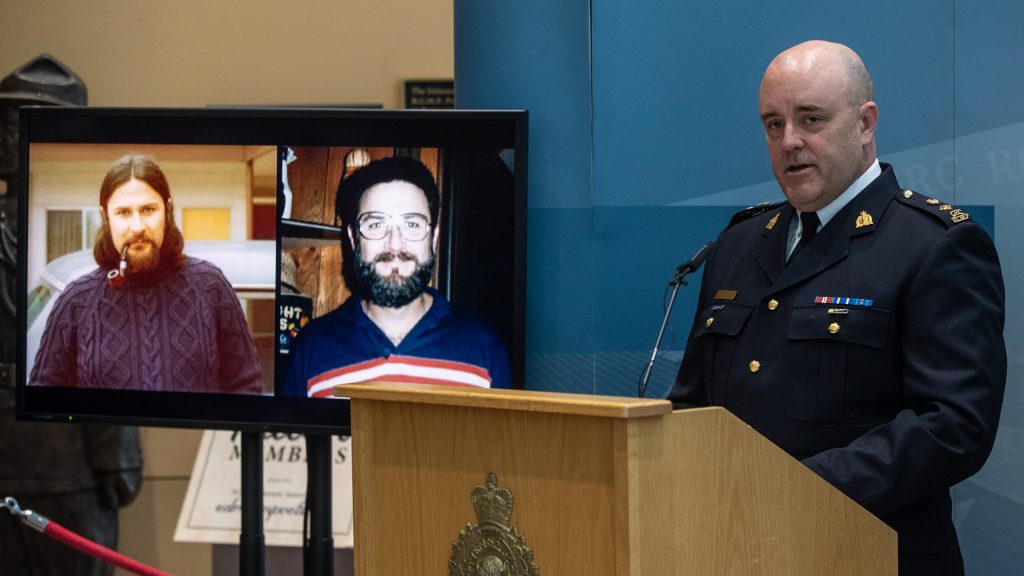Did Alberta voters show pollsters who’s boss with late campaign swing?
Posted Apr 24, 2012 6:31 pm.
This article is more than 5 years old.
EDMONTON – Alison Redford says her Saskatchewan counterpart Brad Wall put it best when he summed up the Alberta premier’s pollster-defying win in the provincial election.
“He said when political parties start negotiating with pollsters now, they may ask for the Alberta discount,” Redford said Tuesday in her first news conference after her victory.
Just hours earlier, her Progressive Conservatives took 61 of 87 seats and 44 per cent of the popular vote to sweep aside a Wildrose party threat and win a 12th consecutive majority government.
The polls had predicted that Redford’s PCs were finally heading to the scrap heap after governing Alberta for almost 41 consecutive years. Many had the results flipped with the Wildrose in the neighbourhood of 40 per cent support.
The stunning win has raised questions on the reliability of polls, the methodology behind them and their proliferation in the Alberta campaign.
Redford said she never believed in them. After all, they are just one snapshot in time.
“All of the questions that so many of you asked me based on a lot of those polls didn’t reflect either what we were seeing or what I was hearing or feeling,” she told reporters in Calgary.
It was left to the academics to grapple with the disparity.
“The polls were fine. They just didn’t do enough of them,” said political scientist Keith Brownsey with Mount Royal University in Calgary. “There was a (late-stage) trend toward the Conservatives and it didn’t measure that.”
Under leader Danielle Smith, the Wildrose — a fellow right-centre rival to the Tories — held an early lead in polls. But it began to slip in the final days when homophobic and racist comments from two of the party’s candidates made headlines.
Edmonton candidate Allan Hunsperger, in a year-old blog, had called the public school system “godless” for preaching tolerance toward gay students and urged gays to repent or burn in hell. Calgary Wildroser Ron Leech told a radio program that as a white man he had more credibility in speaking to people of other races.
Smith said the party didn’t share those views, but she refused to pull the pair out of the race on the grounds of free speech. Tory supporters then put on a full-court press, urging supporters of the left-centre NDP and Liberals to vote PC and prevent a win by an intolerant Wildrose government.
On Monday, the Wildrose dominated the southern rural areas but Wildrose gains were few and far between in Calgary, where they had expected to dominate. They were wiped out in Edmonton and northern Alberta. They ended up taking 17 of 87 seats and a third of the popular vote to become the official Opposition.
Redford dismissed suggestions that “strategic voting” by NDP and Liberal supporters won the day.
She said Albertans responded to her party’s vision.
“What we were doing as Progressive Conservatives was setting out a vision and a plan for the future of this province that we believe is socially progressive and fiscally conservative that allows us to succeed, and I think that’s what we saw yesterday,” she said.
Opponents didn’t see it that way at all.
Wildrose strategist Vitor Marciano said by his count, one in five votes that went to the PCs came from people who had previously gone with the Liberals or NDP.
“Literally there are about 100,000 missing centre-left votes and I’m pretty sure I know where they are — with the PCs,” said Marciano.
He said published polls in the campaign matched what the Wildrose was seeing in internal surveys. But the last minute exodus of left-centre support to the PCs caught them off guard, particularly in central and northern rural ridings, Marciano said.
“A certain percentage of our voters decided on Sunday or Monday they were worried about us having too big a majority and switched to the PCs,” he said.
“That flipped a bunch of ridings that were going to be tight Wildrose wins into PC wins that I didn’t see coming.”
Brownsey agreed, but added that getting committed supporters for one party to vote for another on the gossamer promise of blocking someone is no mean feat.
“These (switchers) were standard mainstream Liberals and that’s a big leap,” said Brownsey. “But it was only Alison Redford who could bring them over (along with) the fact the alternative was a Wildrose government, which none of them wanted.”
Pollster Allan Gregg of the firm Harris-Decima said pundits also failed to factor in a built-in advantage for the PC incumbents.
“I had seen it years and years and years ago, and (what) is so easy to miss in the provincewide and nationwide polling — but especially at the provincial level — is the strength of incumbency,” said Gregg.
“These Progressive Conservative MLAs in the last election got 80 per cent of the popular vote. These (voting) people could be very, very mad at the government but still love ol’ Jim.”
The New Democrats doubled their seat count in Edmonton to four. Leader Brian Mason said his party lost out on other possible wins when NDP supporters went to the PCs.
“In the last few days a lot of people decided to hold their nose and vote Conservative because of the Wildrose.”
Mason dismissed Redford’s theory that the switchers changed their votes out of love for the PCs rather than fear of the Wildrose.
Redford, he said, was the main stoker of those fears.
“How many times did she say she was frightened of the Wildrose in this campaign? A number of times.”
Marciano, a veteran provincial and federal campaigner, said the late- stage migration was breathtaking with 12-point swings in some places.
“I can’t think of a swing that size in the last 48 hours in any other Canadian or American election. I think it was unprecedented,” he said.
“This is why we hold elections and we don’t decide governments based on polls.”
— With files from Bruce Cheadle in Ottawa










